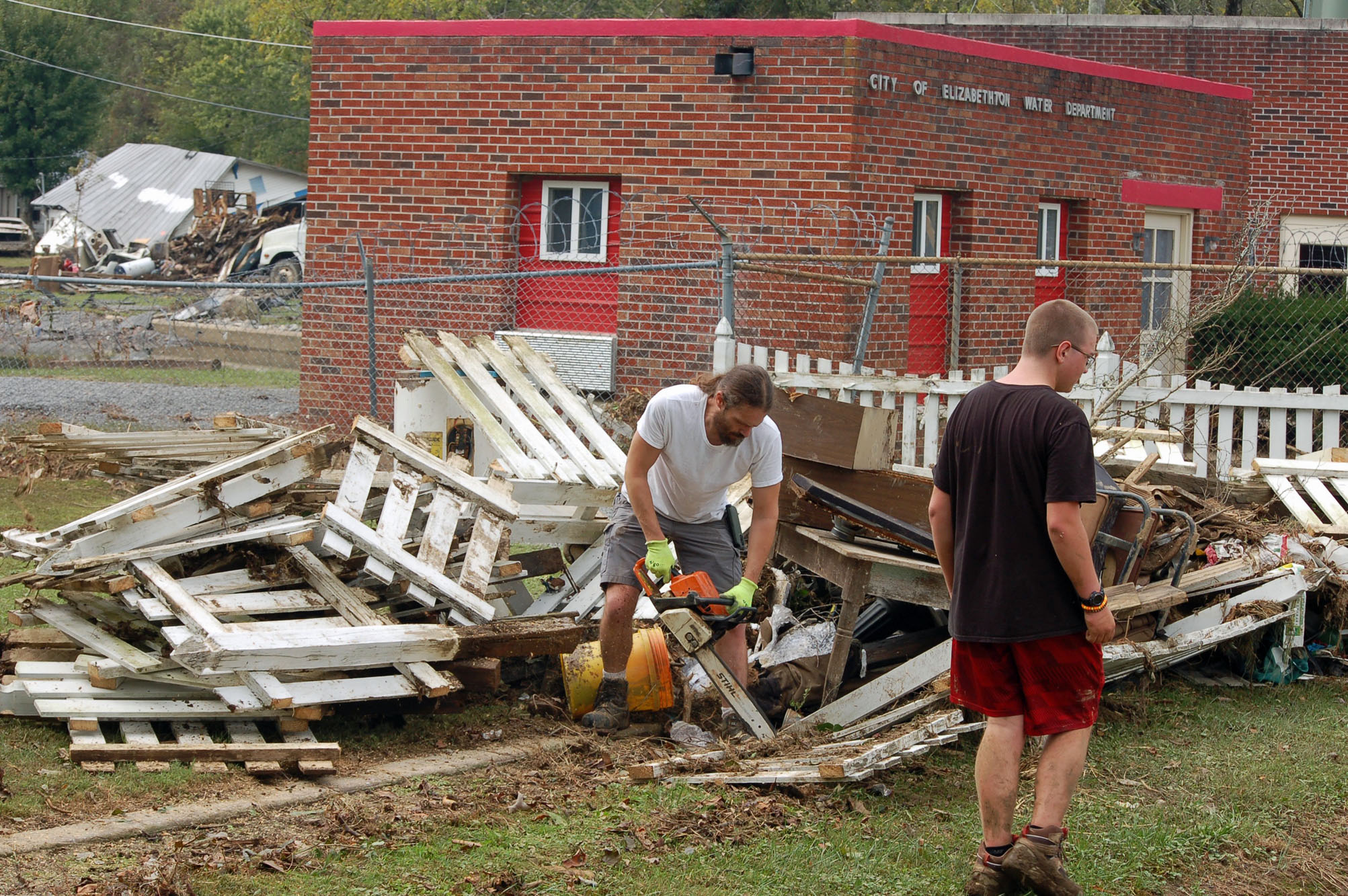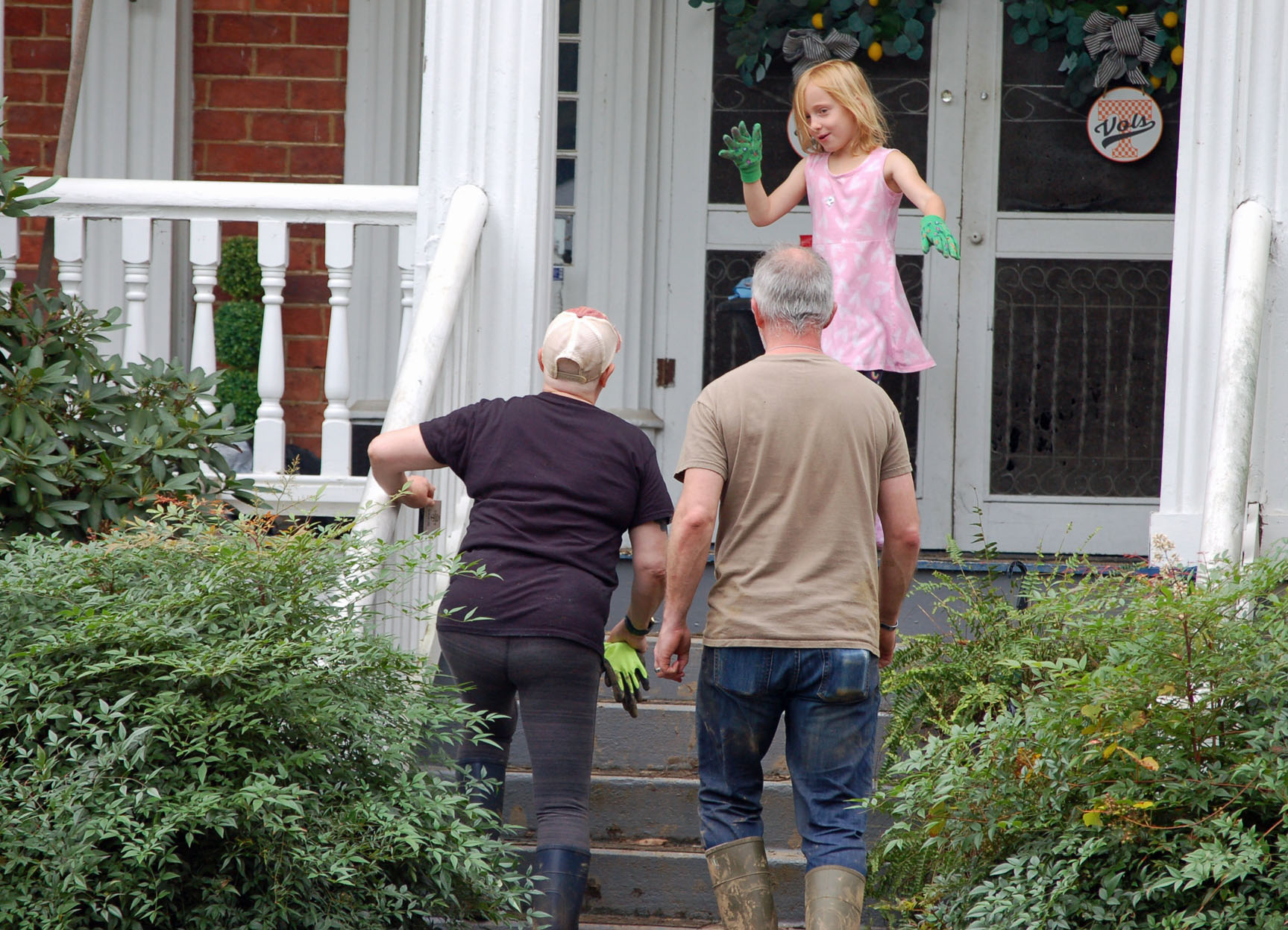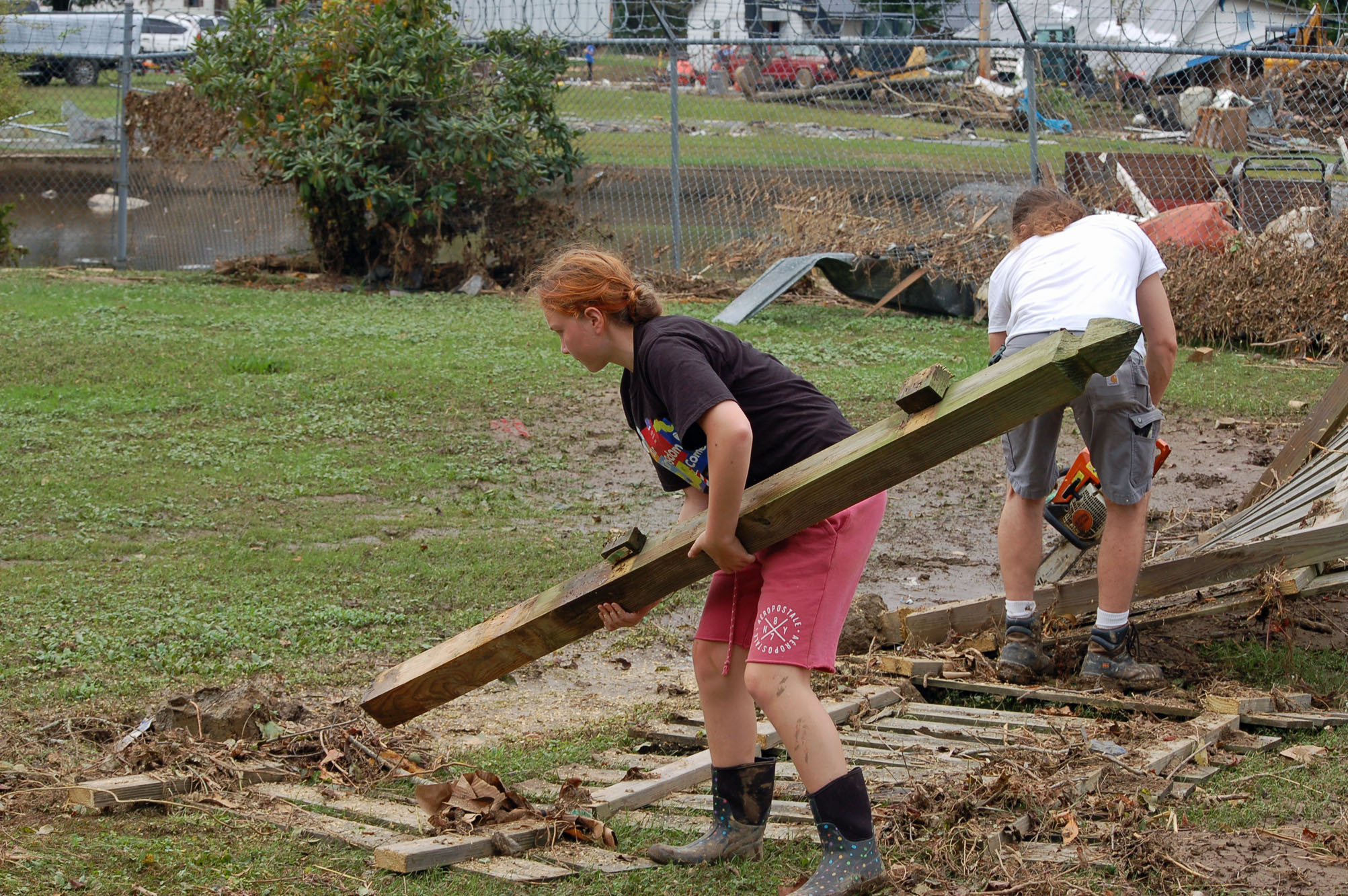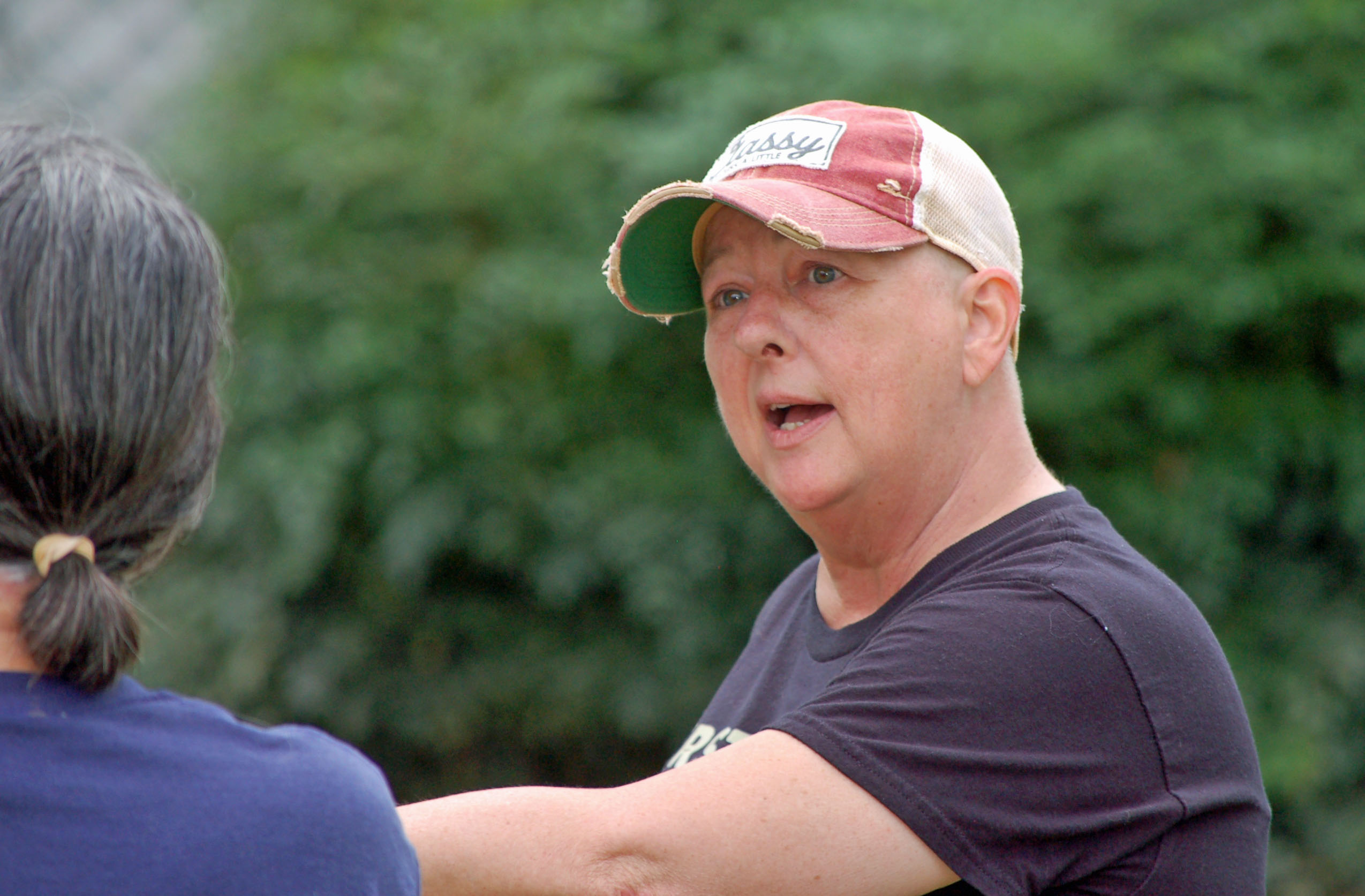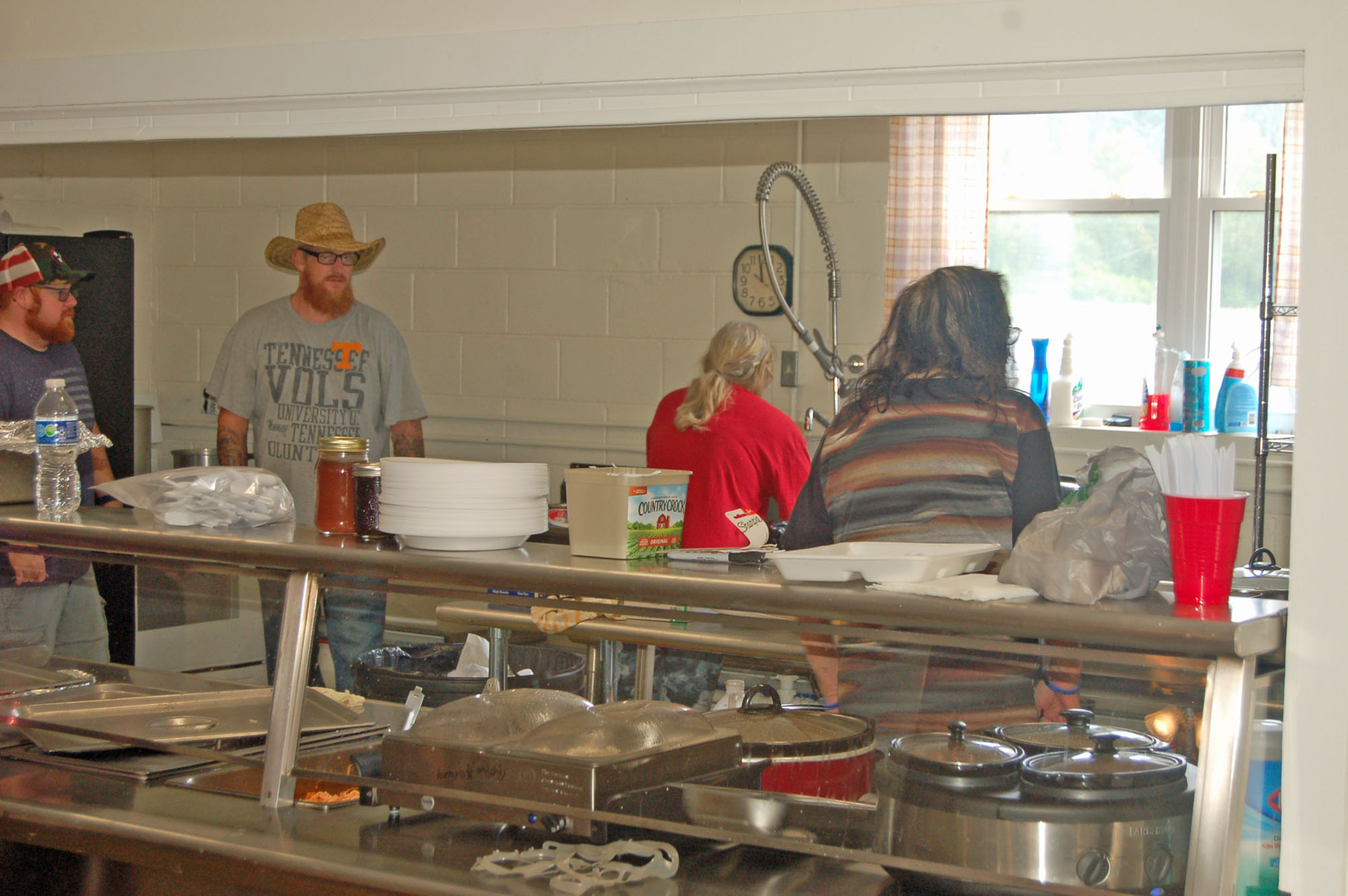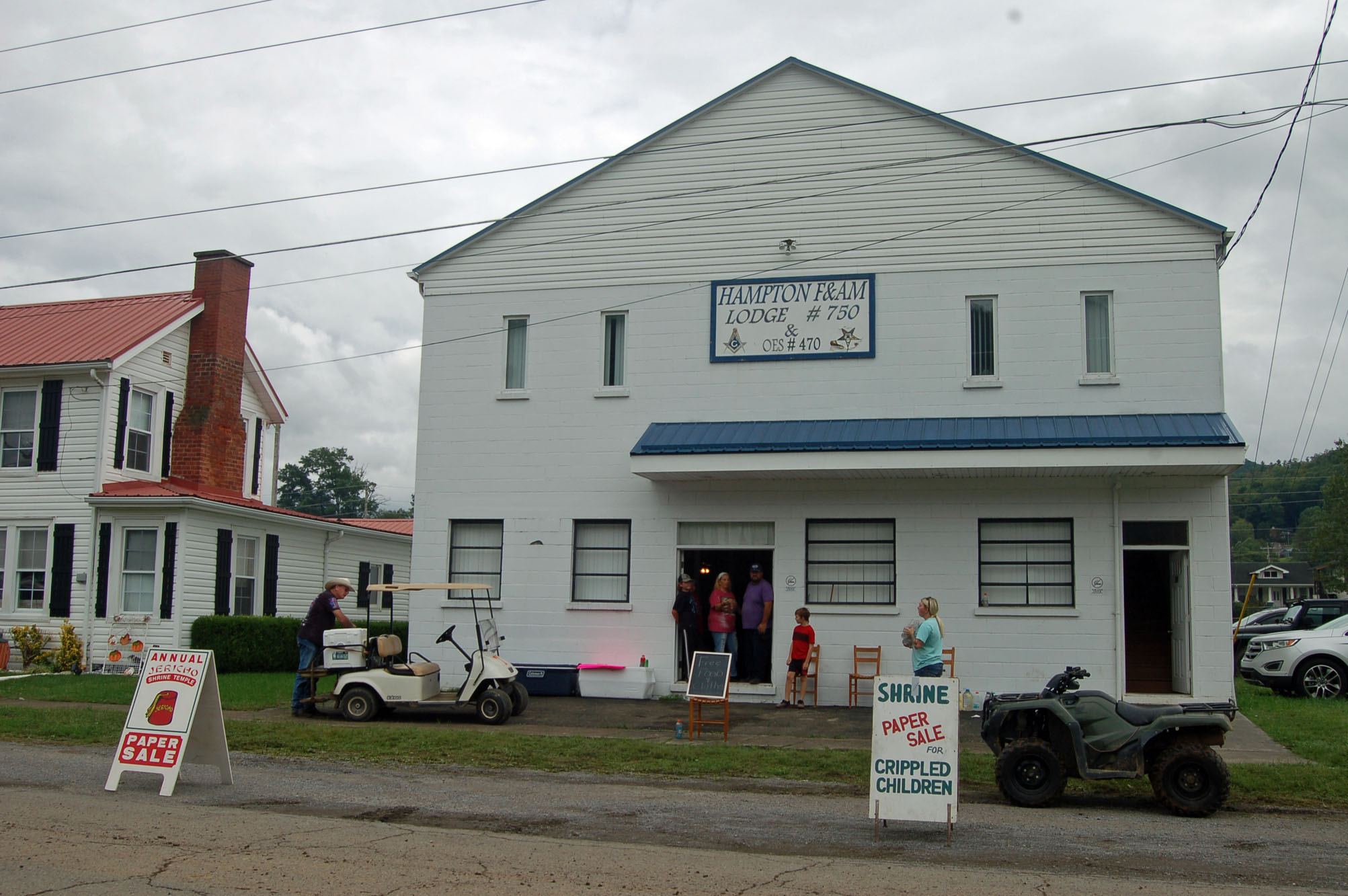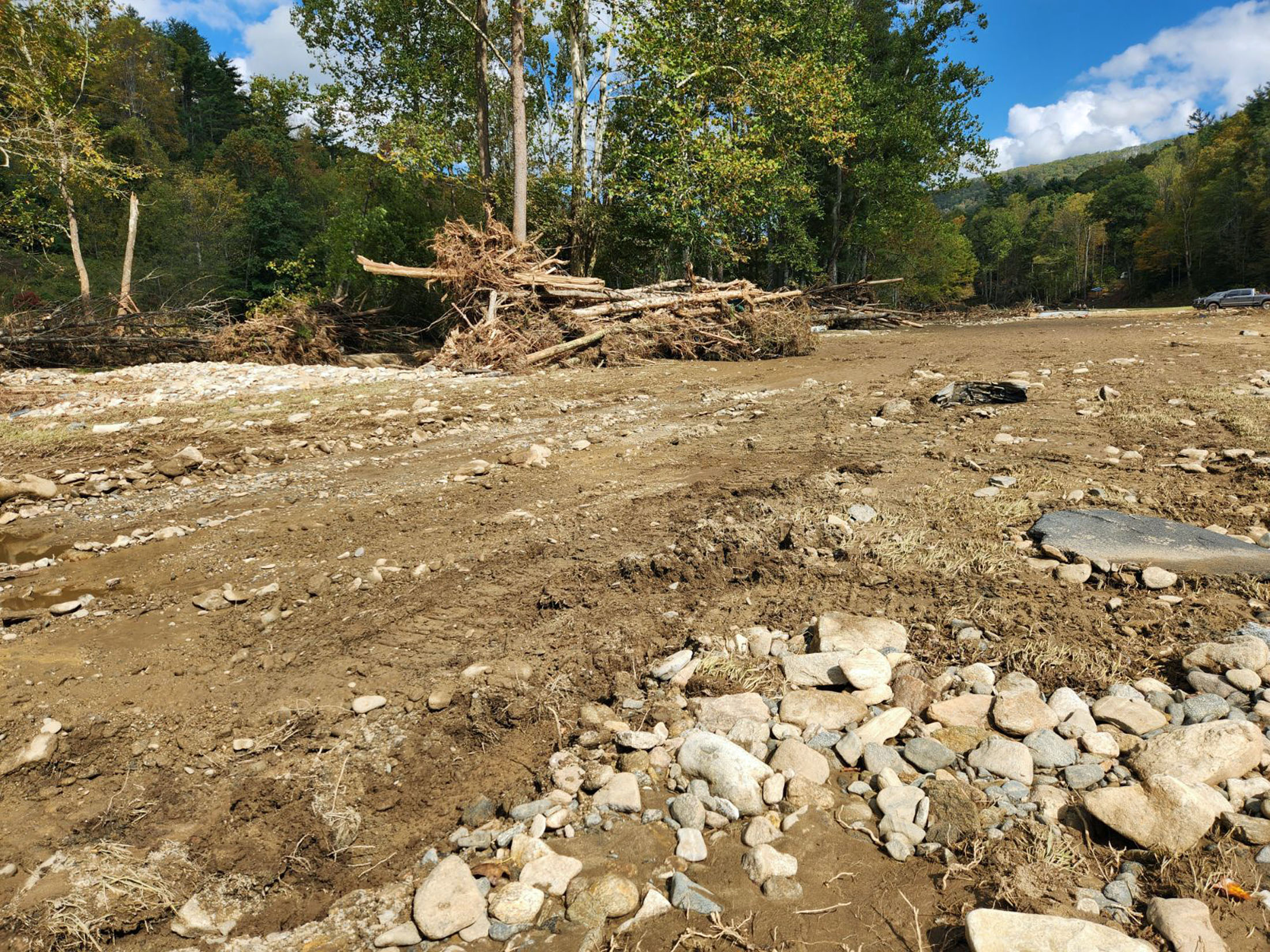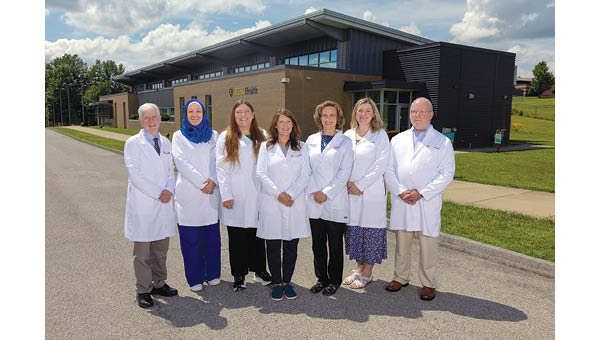In the Shelter of Each Other: Appalachian-tough community ensures Helene victims do not walk alone
Published 2:35 pm Monday, October 7, 2024










|
Getting your Trinity Audio player ready...
|
By Buzz Trexler
Star Correspondent
There’s a song by the contemporary Christian music group Jars of Clay that is simply titled “Shelter.”
The refrain is this:
In the shelter of each other / We will live / We will live …
In the shelter of each other / We will live / We will live …
You will never walk alone.
The song was released 14 years ago, on Oct. 5, 2010.
In the days following Tropical Storm Helene’s rampage through the mountains, valleys, and rivers of Appalachia — including Carter County and Avery County, N.C. – those lyrics take on flesh.
At The Mullenix Home
As one travels toward Hampton from Roan Mountain on U.S. 19E on the Monday after the storm, power lines still sag from the weight of fallen trees. As the town nears, the scene grows uglier. Mud and debris are everywhere, especially on the highway’s residential side where winds from the storm and the Doe River’s flooding exerted a heavy toll. The air has a dank smell; the look on each face is one of grim determination to reclaim what the wind and waters claimed just days before.
Except at 206 Main St., where the sadness appeared to be mixed with joy as friends and people who were previously strangers joined together in the work.
It’s locally known as The Butler Mansion, a 161-year-old house built by Elijah Simerly, the town’s founder. Simerly also served as president of the East Tennessee and Western North Carolina Railroad from 1867 to 1871. It’s now owned by Kim and Jim Mullenix, who purchased the landmark property in 2020.
Kim, who teaches traditional Irish dance, has a smile on her face as her eyes scan the constant work going on around her yard. It’s not because the two-story Italianate-style structure suffered no damage from the flood. Kim says the storm pushed 5 feet of water into the basement and a social media photo shows the historic home surrounded by water.
“I was standing by the fence when it came across the spring pond and me and the dogs just made it into the house,” she says. “It surrounded the house so fast that, I mean, I had to be evacuated. I mean, we’ve never had that. You know what I mean? It floods up front, but it’s never come across down Spring Street except for ’98, and we weren’t here.”
People often compare this disaster to the year when a powerful winter storm brought widespread flooding along the upper Doe River, killing seven people and causing tens of millions of dollars in damage.
“The first place we went to was my office,” her husband Jim says. “I’m a pilot for Highlands One. So, we went over to Elizabethton Airport just to get the dogs and her out. And then we wound up having to go to Johnson City to get a hotel room to stay with the dogs.”
Kim has cancer and had just undergone a chemotherapy treatment the Wednesday before the storm hit, so she needed to be able to shower with clean water. “But we’re back home now, for good,” she says.
But it’s not just being back home that prompts her to smile. It’s how her students and their parents showed up to help clean up.
And then there is Levi Lane and his 9-year-old son, Ronin.
Kim says Levi “just literally showed up with a chainsaw and said, ‘Do you need help?’”
“He’s an amazing man,” she says.
It took Levi five hours to get to Boone, N.C., to pick up his son, but only 2½ hours to come back.
Levi, an Elizabethton carpenter, is using a chainsaw to help take down the damaged fence that once surrounded the yard. He stops just long enough to talk.
“I woke up today feeling a little bad to be only without phone and Internet,” he says, when others seemed to have lost so much. “I made it back with my son and that was all I wanted for my birthday. It’s my birthday today.”
Levi is 44 years old.
Rosie and the Masons
Around the corner on 1st Avenue, Rosie Harwell and family members set up a relief station at Hampton Masonic Lodge No. 750, F&AM, 509 1st Ave.
Her husband, David, is standing in the doorway.
“She started it down there at the store,” David says.
“The store” is 2ND Hand Rose Thrift, Antiques, and Collectibles, 503 1st Ave., just down the block. “It’s a Family Thing,” a sign posted on the store’s social media site reads.
“I was gonna open it up and give free clothes and stuff out,” Rosie says. “And then I had a bunch of snacks and stuff, so I set the tables up. And then I saw the guys with the lodge, so I asked them if I could open the lodge up …”
Her speed-talking is that of a woman who has been in perpetual motion as long as the relief station has been open. Rosie leaves the impression she has told the story several times before.
“… And then I just started getting stuff, and people just started coming in and started helping,” she says. “So, this came from me wanting to start just at the store giving away clothes to this.”
“This” is not merely feeding and supplying on-site, but delivering by way of four-wheel ATVs and golf carts.
“We’re doing hot food. We’ve got cold sandwiches and stuff we’re taking out and delivering out to all the different areas,” Rosie says. “We’ve got baby supplies, we’ve got clothes, we’ve got cleaning supplies, we’ve got drinks …”
Some of the people coming in have not eaten in two or three days, she says.
“It’s just a small thing that we’re doing,” Rosie says. “It’s just our volunteers and people that’s paying for it, and a couple of churches has brought some things in or whatever. But most of it is just the people right here …”
Rosie says her son brought food and donations from Jonesborough, and then she lists a menu of hot food.
“We’ve got homemade soup, got spaghetti, hot dogs, chicken … and roast …”
Rosie then moves off to the kitchen.
It’s a family thing.
In the shelter of each other / We will live / We will live …
Reaching a Cut-Off Community
A little more than a month ago, Steven Gilreath stood in the waters of the Doe River near the State Park Road bridge, assisting Pastor Geren Street as together they baptized three people. The Gilreath family, who built a home on Ripshin Lake, was moving back to Kentucky and it was their last Sunday at First Baptist Church of Roan Mountain.
After news broke of the devastation in Northeast Tennessee and Western North Carolina, Gilreath loaded a trailer and on Tuesday drove more than 300 miles to help with the church’s local recovery efforts. When he arrived, Steven was immediately put to work using his trade skills to hook up generators, reestablish a community water source high atop Roan Mountain, and generally do whatever was needed.
What was needed on Thursday were ATVs and some Appalachian-tough people to reach a cut-off community up Elk River Road. The road and two bridges had washed out.
“You know, you got Elk River Falls and the road getting back there winds through the valley,” he says, sitting on a couch at the reporter’s home after a long day. “Both bridges are completely gone. I mean, 80-foot spans just tore out.”
Gilreath and a team made quite the journey to reach the cut-off community.
“We went across Buck Mountain, through Laurel Fork,” he says. “And from the top up there, through Clawson Holler; you go down through Clawson Holler and then back up Laurel Fork Ridge and then hit a Forest Service trail, and you can get dropped down to Elk River.
“But it’s rough,” he says. “I mean, we couldn’t even get the four-by-fours down there.”
At that point, Gilreath says, the team hiked the rest of the way to help about 15 families with food, water, and gasoline for generators.
Before Steven heads back to the church, he offers to take a neighbor’s waterlogged rug on the way.
He has to stop at the landfill’s convenience center in Roan Mountain anyway.
In the shelter of each other / We will live / We will live …
You will never walk alone.


